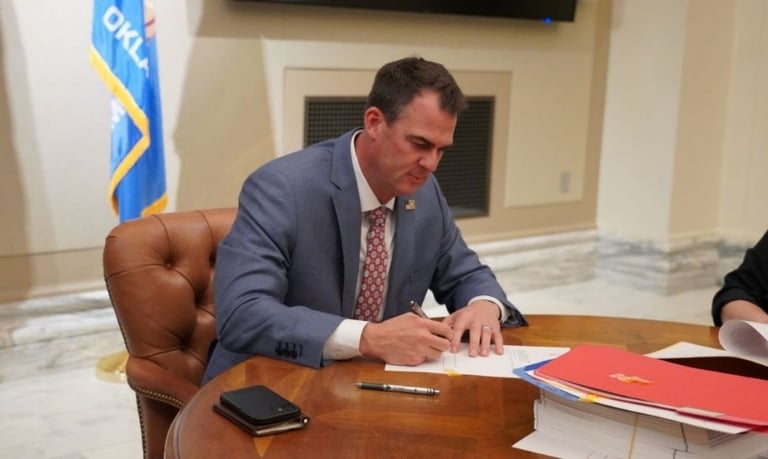Governor Overrides Jury: Oklahoma Death Row Inmate Spared Minutes Before Execution
POLITICS


Gov. Kevin Stitt stopped the execution of convicted murderer Tremane Wood minutes before it began, replacing the death sentence a jury imposed with life in prison. Critics say the decision ignores decades of appeals and the victim’s family, while supporters cite sentencing disparity issues.
OKLAHOMA CITY — Oklahoma Governor Kevin Stitt stopped the execution of convicted murderer Tremane Wood on November 13, 2025 — just minutes before it was set to begin — overriding the jury’s original death sentence and commuting it to life without parole.¹
Wood was convicted of the 2002 robbery and murder of 19-year-old Ronnie Wipf. A jury sentenced him to death. Multiple appeals courts upheld the conviction and sentence for more than two decades.²
Despite this, Stitt chose to act on a 3-2 recommendation from the Pardon and Parole Board, a panel that has faced criticism for repeatedly intervening in capital cases.³
Critics Call It a Political Decision
Victim advocates and tough-on-crime groups blasted the move, arguing:
• The jury already heard the evidence
• Wood had 22 years of appeals
• Nothing prevented the governor from letting the sentence stand
Relatives of Wipf said the decision delayed justice and ignored the will of a unanimous jury.
What Supporters Claimed
Wood’s legal team argued that he did not personally stab Wipf and that his brother — who received a lighter sentence after cooperating — was the primary attacker.
The parole board cited “sentencing disparity” in its recommendation.³
Critics note that this argument did not persuade jurors, appellate courts, or prosecutors during the trial and decades of appeals.
Oklahoma’s Death Penalty Debate
Stitt has now personally halted two executions on the day they were set to occur despite repeatedly campaigning as a law-and-order governor.
Oklahoma remains one of the most active capital-punishment states in America. Several lawmakers are now pushing legislation that would strip the governor of unilateral power in capital cases unless new evidence emerges.
